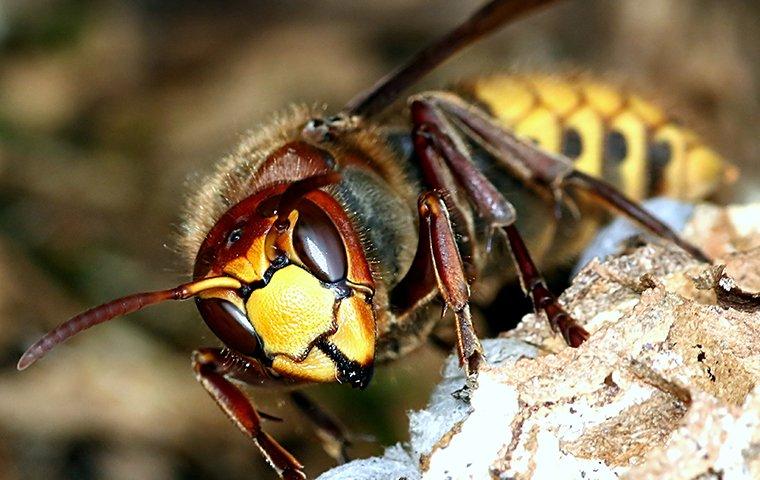
Spring marks the return of warm weather, meaning pool days, barbecues, and other outdoor gatherings. Unfortunately for homeowners across America, spring also marks the return stinging insects that can turn a pleasant afternoon outside into a nightmare. Paper wasps, yellow jackets, baldfaced hornets, cicada killers, and mud daubers are all common spring invaders, each bringing painful stings and other problems to families they come into contact with.
Once a stinging insect infestation is underway, it can be extremely difficult to remove using DIY methods alone, and the average homeowner could put themselves in danger trying to do so. For this reason, preventing stinging insects before they can infest your yard is a necessity. Here are some great steps you can take to do just that:
- Avoid wearing perfume or cologne while outdoors, as these aromas can be mistaken for the smell of flowers, attracting stinging insects on the hunt for nectar.
- Don’t leave food out. During barbecues or other outdoor gatherings, keep food and drink covered, especially sugary foods and drinks. When not in use, cover fruits, fruit juices, and meats with sweet sauces, as these attract wasps.
- Wear darker-color clothing, as bright colors and floral patterns on shirts and dresses can be mistaken for actual flowers.
- Keep exterior trash stored in sealed plastic containers with the lid closed, and don’t let trash build up over time.
- Use decoy wasp nests to deter other wasps from making nests nearby, as wasps are very territorial and tend to avoid competition by building nests well away from one another.
- Fix and seal old fences and decks, tool sheds, and other exterior areas that could attract stinging insects looking for a safe place to create a nest.
- Plant lemongrass and mint around your yard. These herbs give off aromas that act as natural deterrents to wasps. Plant nectar-rich flowers away from the exterior of the home.
- Move bird feeders well away from your home and keep trees and shrubs well-maintained to avoid giving wasps and hornets harborage spots near the home.
- Pick up trash, children's toys, and other clutter around the yard that could serve as hiding places for stinging insects during the day.
- Inspect the exterior of your home thoroughly for any tears or gaps in the siding where stinging insects could get inside. Seal these gaps with caulking.
- Keep exterior doors and windows closed when not in use, and install door and window screens to keep them out of the home on warm days.
Be on the lookout for the golf ball-sized paper nests underneath eaves and long mud tubes built along walls and siding, as these are stinging insect nests. Contact a professional immediately if you start seeing stinging insect nests crop up around your home.
How A Professional Can Help Solve Your Stinging Insect Problem
Unfortunately, no matter how well you prepare yourself, stinging insects around the yard could be an inevitability depending on your home’s location and the surrounding environment. With how difficult it can be for the average homeowner to take care of stinging insects around their yard and the potential dangers they could encounter, comprehensive stinging insect infestations require professional treatment.
If stinging wasps, hornets, or other stinging insects start buzzing around your yard, don’t wait. Contact the pest professionals at Pestmaster® Services for professional stinging insect treatment. Our team of expert technicians will help you take back your yard safely and effectively so you can enjoy your summer outdoors in peace. Call us today for more information about the services we offer and to see if one of our professional stinging insect reduction programs might be right for you.
.png)
.png)